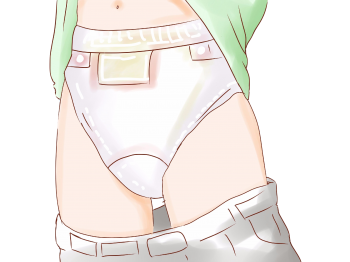Certains vêtements sont pensés pour faciliter la vie, sans compromis sur le confort. La grenouillère adulte 4Care en coton avec fermeture éclair à l’avant s’inscrit dans cette idée : une pièce simple, pratique, agréable à porter, qui aide au quotidien.

How to wear diapers discreetly?
Children who wet the bed are children just like any other, except that many of them need to wear protective equipment at night. Bedwetting diapers are widely available, but many children and families still struggle to accept their use in everyday life. Yet, they are very effective and increasingly discreet. , explains tips to make this obligation more comfortable for your child.
The use of protective equipment has become very common
Approximately 80% of children suffering from enuresis wear protection appropriate for their age.
 |
Wearing diapers when bedwetting is necessary if you want to sleep and wake up in a dry bed. It's not something the child chooses or wants. While products have improved significantly, they are still visible and must be put on and taken off daily. For many children, wearing diapers is still difficult because they're afraid of being discovered or being mistaken for a baby. |
We will therefore give you some tips to help them manage their daily lives with serenity:
TIP: What to say to a child who refuses to wear a diaper?
Do you know where the name "diaper" for babies comes from?
It's because, as parents , to change a baby, we lay them on the changing table . The baby can't do anything on their own. But you, on the other hand, can manage without our help. You can put on your underwear or your diaper by yourself without asking us. You don't need us to lay you down. It's the same in the morning. When you get up, you can take it off by yourself and throw it in the trash without our help. So you see, just because you wet the bed doesn't mean you're a baby. The package is in your room; it's up to you to deal with it yourself.
At home :
Home is the place where children most easily accept diapers, but certain rules must still be followed:
- Place the protective equipment in a personal location where the child can access it without needing a family member's help. This area can be locked if necessary when friends come to visit.
- Install a small bin in the bathroom so he can dispose of his sanitary products in peace and quiet in the morning.
- Have a box of wipes on hand for washing in case of need.
- Establish a secret code with him for when it's time to buy protective equipment and avoid buying it in his presence. Many parents now order online because the selection is greater, the products are of better quality, and the prices are more attractive.
- At home, establish a rule of confidentiality with the other siblings. Some families keep it secret, while others discuss it openly with their siblings. Experience shows that everything gets out eventually, so it seems more logical to talk about it and explain why one of the children continues to wear incontinence pads . Emphasize that it's not intentional and that it's important to support them. Inform the other children, explaining that they mustn't tell anyone else.
- Although absorbent underwear is easier to put on, we recommend complete briefs as they are more absorbent and cheaper.
- A child who wets the bed doesn't like to talk about their little problem, let them manage their bedwetting on their own but check from time to time that everything is being done properly.
- If you need to talk to your child about it, do it alone and preferably in the evening before bedtime. Children are calmer then and will have all night to think about it quietly.
Boarding school or school trip:
Living away from home is already a challenge for a child. Opening up to the outside world can sometimes be frightening. Having to wear protective gear is a step that will add even more anxiety for your child. Some even go so far as to refuse these opportunities out of fear. However, there are solutions that should be explained to the child.
- If your child sleeps in a sleeping bag, simply place a protective pad inside. Once inside, your child can easily put it on. We recommend using absorbent underwear for these occasions, as it's easier to put on. In the morning, your child can simply remove the pad and leave it inside. Have some small plastic bags on hand.
- If your child sleeps in a single room, you should proceed in the same way as at home.
- If your child sleeps in shared rooms, inquire whether the center or school has the possibility of providing rooms for children with the same issue.
- If the school has an infirmary, it is also possible to leave protective clothing so that he can go and change in peace.
During long journeys:
Traveling by car, train, or plane often requires sleeping. During these journeys, we recommend using absorbent underwear, which is easier to put on independently.
- On planes and trains, changing facilities are more limited, and children often have to change on their own. Pack a small travel bag with everything they need (absorbent underwear, wipes, a change of clothes).
- If you are driving, use motorway service areas so that he can change in peace and quiet.
At a friend's house:
Having a sleepover at a friend's house is an important step in your child's development. Therefore, it's a shame to have to give it up because of bedwetting.
- We advise you, if possible, to speak with your child's friend's mother and ask her not to tell anyone. Your child should always have the choice of whether or not to tell their friend. It's important that your child doesn't have any doubt about whether their friend knows or not.
- Put a sleeping bag inside his sleeping bag with a liner inside. He'll only need to put it in once he's inside and take it out before getting up. Always give him a small box of wipes so he can clean himself up quickly.
In the family:
Sleeping at grandparents' house, at uncle's or aunt's is part of the holidays that every child should be able to approach without fear.
- Ask family members not to change their routines and not to discuss it with your child. That's not their role.
- If you know any family members who have experienced this issue, explain it to your child and suggest they talk about it. It's often very beneficial for a beloved uncle, grandpa, or aunt to share their personal experience.
As a general rule,
- Bedwetting isn't a serious issue. It's important to take this in stride and not make it a big deal. Treat bedwetting as a normal part of development without obsessing over it.
- Establish a circle of trust with your child. Only talk about it with people the child has agreed to talk to.
- Let him manage his bedwetting as much as possible. It's also a way to teach him responsibility and make him more independent.
- Never start a conversation about your child's bedwetting in front of other people unless your child gives you their consent.








Latest comments